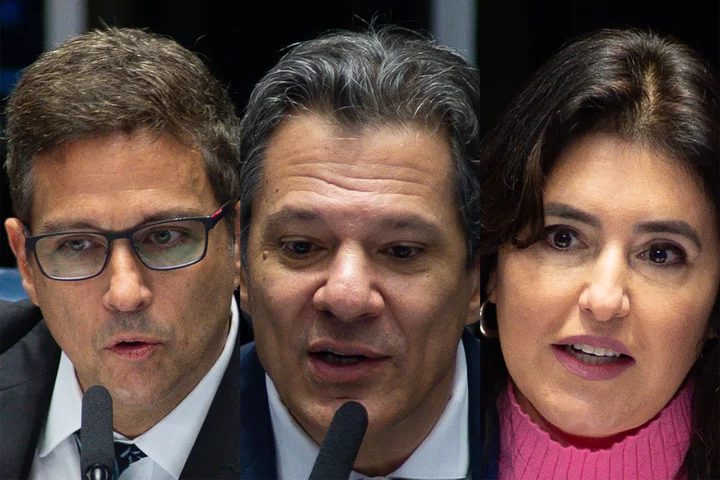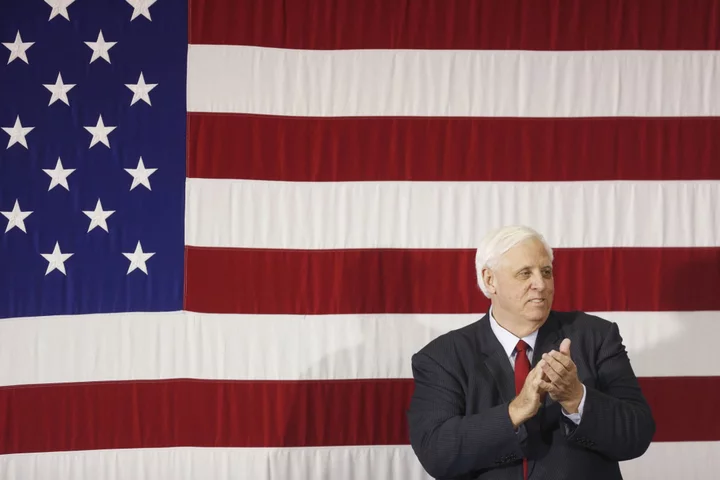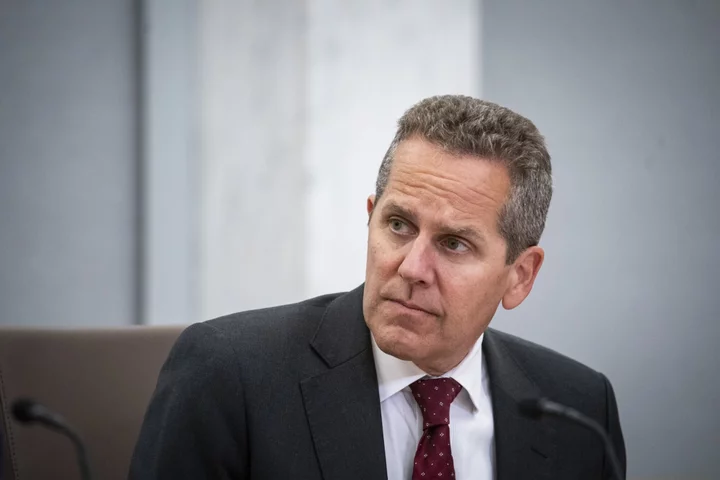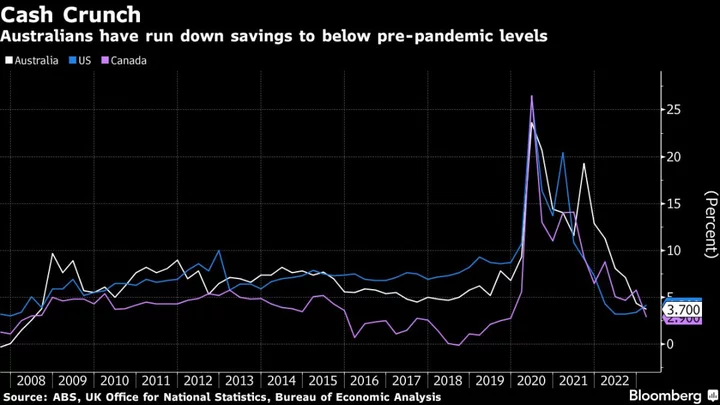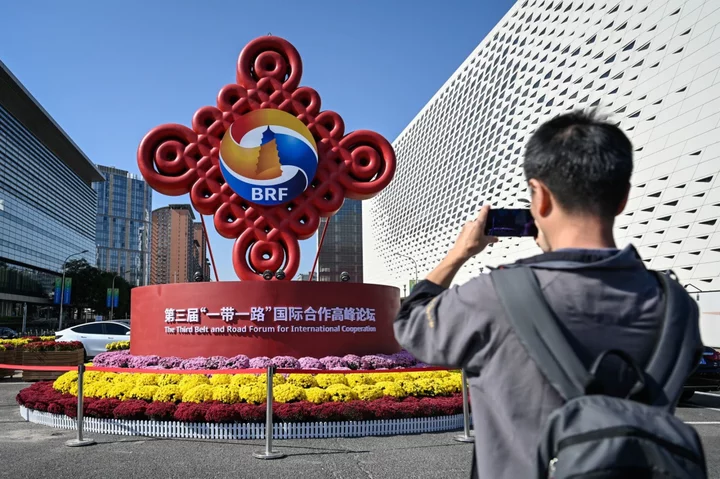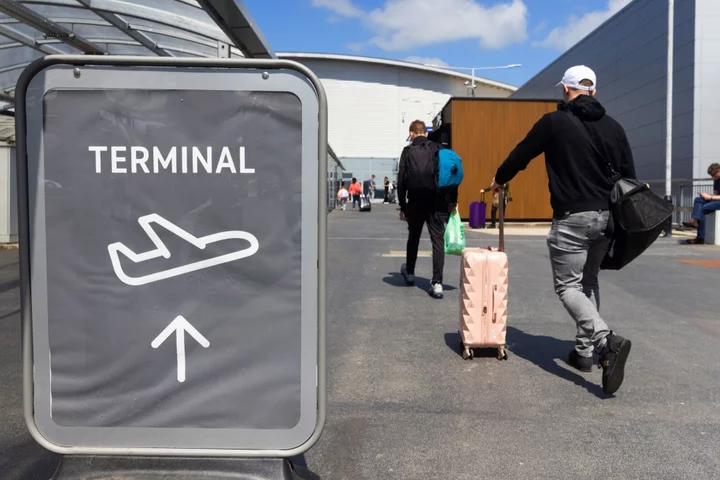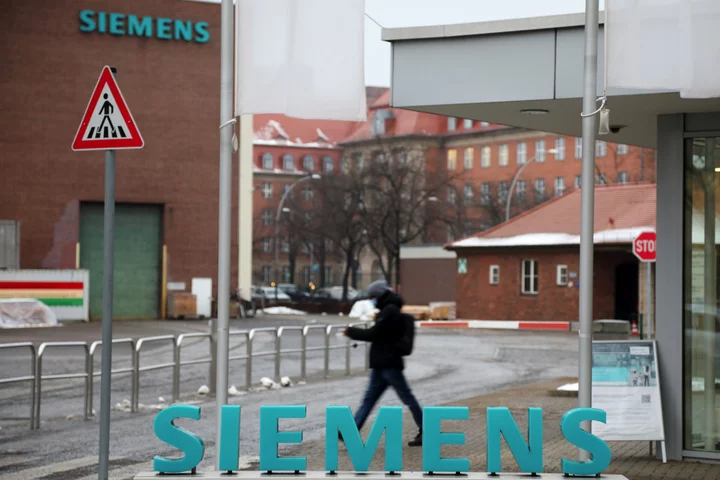Brazil’s upcoming decision on future inflation targets is likely to define whether the central bank may start cutting interest rates at its next policy meeting.
Central bank President Roberto Campos Neto, Finance Minister Fernando Haddad and Planning Minister Simone Tebet will meet on Thursday to review the current 3% target for the next couple years and set a new one for 2026. They may also tweak the system, getting rid of specific objectives for each calendar year and introducing a constant, medium-term inflation goal.
The decision will be crucial to determine the beginning of Brazil’s long-awaited monetary easing cycle. If the target for 2024 and 2025 is reaffirmed and also extended to include 2026, then inflation expectations may decline further, possibly creating room for borrowing costs to fall as soon as August. The meeting outcome will be closely watched by President Luiz Inacio Lula da Silva, who has clamored for lower rates to provide relief to businesses and families.
“Brazil doesn’t need such a rigid goal,” Lula said during an interview with a local radio station on Thursday morning. Since the implementation of the inflation targeting regime in 1999, central bankers have missed their targets seven times. “We need a goal we can actually achieve, and then we can lower it,” he said.
While Brazil’s central bank is autonomous, the institution does not set inflation goals by itself. Campos Neto, who has repeatedly opposed higher targets, will try to convince his colleagues at the National Monetary Council, which will publish its decision after financial markets close.
What Bloomberg Economics Says
“President Luiz Inacio Lula da Silva has criticized the country’s inflation targets as unnecessarily low, driving speculation the CMN could raise them. In turn, that raised inflation expectations. Holding the long-term target at 3% instead could trigger a decline in market forecasts for 2025 and 2026 and pave the way for an August rate cut.”
— Adriana Dupita, Brazil and Argentina economist
— Click here for full report
Haddad and Tebet have given no sign of wanting to change current objectives, though they are close to Lula, who defended a higher goal of 4.5% at the start of his term. Lula’s calls led analysts to boost medium-term inflation estimates, quelling bets that rate cuts would start earlier this year.
The council will likely address the broader inflation targeting framework, as well as objectives for 2025 and 2026 rather than next year’s goal, Tebet said at an event early in the day.
Most analysts now expect the council to keep the target at 3% with a tolerance range of 1.5 percentage points, tweaking the system to introduce a continuous inflation goal. That would be the best-case scenario, according to Carlos Macedo, an economist at Warren Asset Management.
“Any changes could have an impact on inflation expectations, which the central bank is closely monitoring to legitimize rate cuts,” said Macedo.
Raising Confidence
After an aggressive monetary tightening cycle that lifted the benchmark Selic from a record low of 2%, policymakers have kept the rate at 13.75% for over nine months. Annual inflation is now running at its slowest pace since September 2020, fueling bets that easing will start at the next policy meeting.
Campos Neto told reporters on Thursday the statement published with last week’s rate decision made it clear borrowing cost cuts will be an option in August. “Its intention was to spread a consensus, leaving the door open” for reductions, he said while noting future votes may not be unanimous.
In the minutes to their June meeting, central bankers said decisions “that raise confidence in inflation targets” would induce lower inflation, thus “allowing monetary easing.”
Part of investors’ views on rates also stems from Brazil’s worsening economic outlook, with retail sales stalling, industrial output diving and household debt rising. Central bankers raised their 2023 growth estimate to 2% from 1.2%, according to a report published early in the day, while also warning that activity will slow down going forward.
Brazil is one of the few countries where central bankers are expected to deliver on their inflation mandate every December. Most work with a continuous horizon, considering normal lags associated with monetary policy.
The head of Brazil’s central bank is also required by law to explain what went wrong each time the monetary authority fails to bring inflation to target. Campos Neto wrote public letters for 2021 and 2022 when consumer prices soared well above the tolerance range.
Analysts surveyed by the monetary authority have lowered their estimates for consumer price increases in recent weeks, expecting current inflation goals will stick. Any negative surprise may send them right back up again, such as when they rose toward 4% when Lula began criticizing monetary policy earlier in the year.
--With assistance from Josue Leonel and Bruna Lessa.
(Updates with comments from Campos Neto and Tebet starting in eighth paragraph)

